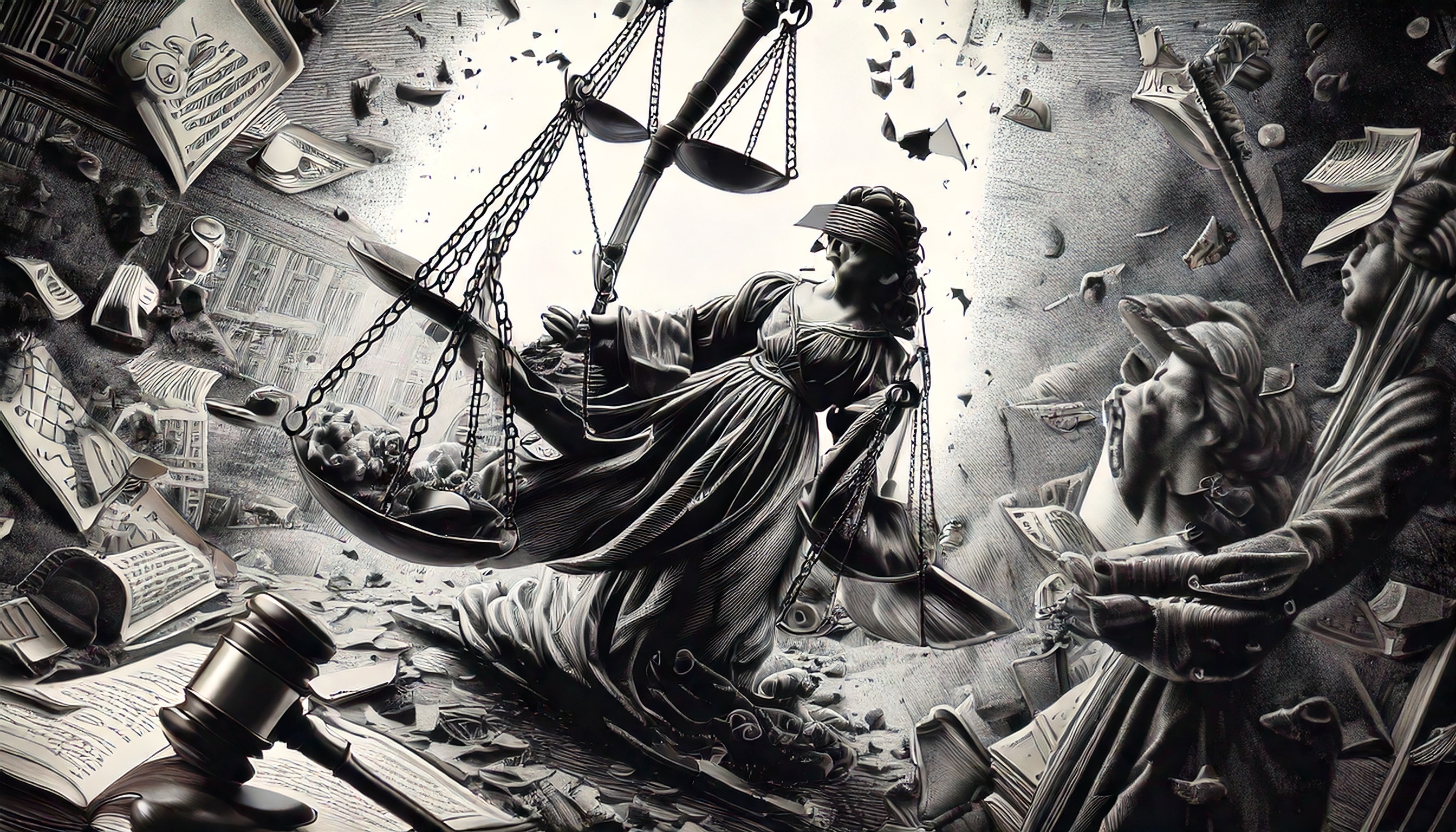What Happens When a Defendant Doesn't Pay a Judgment
When a defendant doesn't pay a judgment, the creditor can invoke a number of legal remedies including wage garnishment, seizure of assets, levies on bank accounts, and liens on property to recover the debt.
Winning a court case should be something to brag about, but what if the defendant simply refuses to pay the judgment? This infuriating dilemma is one that thousands of people each year find themselves with when they are left holding a piece of paper that is basically useless when the losing party refuses to pay their legal obligation.
Knowledge of what occurs when a defendant fails to pay a judgment is important for everyone involved in legal conflicts. If you are a creditor attempting to collect funds or an individual with a judgment debt, knowledge of the consequences and possible alternatives guides you through this difficult process efficiently.
The reality is that getting a judgment is only half the battle. Collection is no less burdensome than the original lawsuit. Most creditors are astounded to discover that courts do not execute their judgments on behalf of creditors or collect money from defendants.

Understanding Judgment Debts and Their Legal Nature
A judgment debt occurs when the court requires one party to compensate the other party with money after a judicial process. This is a legally enforceable duty that does not simply disappear because the defendant does not want to pay. The judgment may still be enforced and normally lasts for a number of years depending on the state legislation.
Most judgment debts may be renewed prior to their expiration, so the collection period remains open-ended in most cases. That leaves defendants to not just sit back and wait out the clock and expect the debt to disappear. The legal debt persists, adding on interest and other charges over time.
The majority of people mistakenly believe that a winning suit obliges them to get paid immediately. The grim reality is otherwise. Courts determine responsibility in law and set monetary awards but do not receive money directly from defendants. That is left for the creditor's side.
The frustration of having to deal with non-paying defendants is perfectly reasonable. You've invested a lot of time, money, and emotional equity to win your case and discover that collecting the money involves additional work and potentially additional attorney fees.
The Instant Effects When Defendants Don't Pay
When the defendant fails to pay a judgment, a few things automatically happen. The most significant one is that the judgment debt continues to increase with interest, at a rate defined by the state statute. This interest accumulates over time, so the entire amount gets larger each day.
Judgment interest rates are generally higher than usual commercial loan rates, sometimes as much as 10% or more annually. That is, a $10,000 judgment becomes $11,000 or more in the first year of nonpayment. Within a few years, interest has added up to a considerable sum.
Credit reporting agencies normally learn of unpaid judgments either from the court or public record search. This bad mark on their record can severely damage the defendant's credit score, and it will be extremely difficult to obtain loans, credit cards, a home, or even rent an apartment. The judgment usually remains on credit reports for seven years.
The credit effect is more than simply borrowing trouble. Credit reports are now routinely checked by many employers during the hiring process, especially for those jobs that require financial responsibility. An unsatisfied judgment can thus influence job prospects years ahead.
Other defendants attempt to hide assets or sell property to friends or family members in an effort not to pay. These attempts will frequently spectacularly fall short and initiate additional legal consequences. Judges are extremely unsympathetic to defendants who attempt to avoid their legal obligations by using fraudulent conveyances.
Legal Remedies Available to Creditors
The creditor has numerous powerful tools at his disposal when a defendant does not pay a judgment. These collection processes are legal and can be highly effective when applied properly.

Wage Garnishment - The Most Popular Collection Procedure
Wage garnishment is likely the most common and effective collection method for judgments against individuals. The court can direct the employer of the defendant to withhold a percentage of their wages and send that amount directly to the creditor. This creates an automatic payment stream without the need for regular court hearings.
Federal law limits garnishment to 25% of disposable income or the amount by which weekly wages exceed 30 times the federal minimum wage, whichever is less. A few states are more restrictive with additional safeguards for debtors.
This collection method works quite effectively because it is automatic and ongoing. Once the garnishment order is served on the employer in the proper manner, payments begin immediately and continue until the debt is satisfied. The defendant will not be able to stop the garnishment through resignation alone.
Employers are required by law to obey wage garnishment orders and can be penalized for failure to do so. This puts creditors in a powerful position since most employers do not wish to have the hassle of legal issues and will obey validly served garnishment orders.
Bank Account Levies - Direct Access to Funds
Bank account levies allow creditors to freeze and seize funds directly from the defendant's bank accounts. The remedy may be especially effective in the sense that it provides creditors with immediate access to available funds, in contrast to wage garnishment's gradual capacity to collect.
The process typically involves the creditor obtaining a writ of execution from court and serving it on defendant's bank. The bank must then freeze the account and pay over the money to satisfy the judgment. This may be done until the debt is fully satisfied.
But there are types of funds that are exempt from levy under federal and state law. Social Security benefits, unemployment compensation, and certain pension benefits typically can't be taken. The trick is, banks don't always keep exempt and non-exempt funds separate when they receive a levy order.
Asset Seizure and Public Auction Sales
When a defendant does not pay a judgment and possesses valuable personal assets, the creditors can pursue seizure of property by going through the sheriff's office. The assets are sold at a public auction, and the money is applied towards paying the judgment debt.
Common assets seized are boats, automobiles, recreational equipment, jewelry, electronics, and other consumer personal property. Most states do provide exemptions for necessities to ensure that the defendants are permitted to have a minimum standard of living.
Exemption laws vary significantly across states. Some states provide extravagant exemptions that protect considerable amounts of property, while others provide minimal protection. Understanding these exemptions is critical for both defendants and creditors.
Property Liens - Long-Term Security Interests
Placing liens on properties belonging to the defendant is another useful tool of collection with long-term security for the judgment creditors. A judgment lien creates a claim in law on the property for the creditor, and thus the defendant cannot sell or refinance without first paying off the judgment debt.
Property liens are particularly effective since they can remain in effect for a number of years. Even if the defendant cannot pay at once, the lien ensures that the creditor is paid when the property is finally sold or refinanced.
The filing process varies by state but in general involves recording the judgment in the county recorder's office where the property is located. Once properly filed, the lien will be a public record and will appear in title searches.
Long-Term Consequences for Non-Paying Defendants
The impact of failing to pay a judgment far exceeds short-term collection actions. The long-term effects can remain for defendants for years to come, and failing to pay becomes an expensive error that snowballs with time.

Extreme Credit Score Damage
Unpaid judgments can destroy credit scores in ways that reach almost every stage of a defendant's financial life. The damage goes beyond just having trouble getting credit cards or loans - it can reach housing, employment, insurance rates, and even utility deposits.
The credit damage of unpaid judgments is particularly severe because it indicates a failure to comply with legal responsibilities. Credit scoring models view it as one of the worst adverse marks, often reducing scores by 100 points or more.
Landlords also usually sift through credit reports when they are contemplating renting out an apartment. Unpaid judgments can make it extremely difficult to secure decent housing, forcing defendants into substandard housing or requiring excessive security deposits.
Accumulating Interest and Growing Debt
Judgment debts also accrue interest at state law-established rates, and such rates are typically higher than commercial lending rates. The interest compounds over the years, such that relatively small judgments grow into huge amounts if left unpaid for decades.
Apart from this, the creditors can also add collection fees, attorney fees, and court charges to the amount outstanding. These additional charges are not particularly small, particularly if the creditor has to conduct several collection proceedings.
This can lead to a defendant who will not pay owing much more than the original judgment. A debt that starts as doable $5,000 can easily be a $10,000 or $15,000 debt several years down the line due to interest and collection charges.
Legal Complications and Contempt Risks
Defendants who consistently refuse to pay judgments can also get into more legal problems than normal collection efforts. The courts may hold defendants in contempt for willful disobedience of a payment order when the defendant has the capability to do so but simply chooses not to.
Contempt proceedings can result in jail time, though imprisonment for debt is generally prohibited except where contempt was willful. The distinction between refusal to pay and inability to pay is crucial.
When Payment Plans Provide Solutions

Not every defendant who defaults on paying judgments is willfully evading responsibility. Most simply can't pay the full amount upfront because they lost their job, had medical expenses to cover, or had other economic reversals. Structured payment plans may then be available for both parties in such instances.
The majority of creditors are willing to negotiate sensible payment terms rather than resort to hardball collection methods. A payment plan is a sure source of revenue for the creditor while allowing the defendant to satisfy the obligation without risk of seizure of assets or garnishment of wages.
Judges will occasionally encourage payment plans in place of formal collection proceedings. There are even formal programs in some jurisdictions that help defendants get underway with feasible payment plans. These plans are sometimes court-supervised or established through mediation services to ensure both sides comply with the terms.
When such a plan is honored, collection actions are usually paused. But if the defendant defaults on the plan, the creditor can resume any legal collection measures available to them. Therefore, it is vital that any agreed-upon plan be realistic and sustainable for the defendant.
Bankruptcy as a Last Resort
Some defendants consider bankruptcy to eliminate or reduce judgment debts. Bankruptcy laws offer relief for individuals unable to meet their financial obligations, but it is not a magic wand. Whether a judgment debt can be discharged depends heavily on the type of debt and the type of bankruptcy filed.
Most consumer judgments stemming from contract breaches, unpaid credit card bills, or loans may be discharged under Chapter 7 or Chapter 13 bankruptcy. However, debts involving fraud, intentional injury, or court fines often survive bankruptcy.
Bankruptcy is a serious legal process with long-term consequences. It can halt collection efforts temporarily through an automatic stay, but it also severely damages the filer’s credit and remains on credit reports for up to 10 years.
Before considering bankruptcy, defendants should consult with a bankruptcy attorney to explore all options. It might turn out that negotiating a payment plan or settling the debt for a reduced amount is a more effective and less damaging approach.
Final Thoughts on Dealing With Unpaid Judgments
When a defendant doesn't pay a judgment, the path forward is filled with stress, effort, and further legal involvement. For creditors, understanding available remedies and pursuing them strategically is essential to eventually collecting what is owed. For defendants, understanding the consequences of nonpayment—and exploring reasonable options like payment plans or negotiated settlements—is vital to avoid long-term financial and legal hardship.
Ignoring a judgment doesn’t make it go away. It only makes things worse. Whether you are on the collecting or owing side, legal advice and proactive communication are your best tools to resolve the situation effectively.










